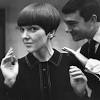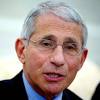‘It helps me know that I am not in it alone anymore’: Breonna Taylor’s mother on her daughter and protests


“I’m so grateful to the people listening and wanting the same thing I want — justice,” Tamika Palmer said Friday in an interview with The 19th. “It’s been hard, but the added support I’m getting from around the country helps keep me going. It helps me know that I am not in it alone anymore. It keeps me determined, that’s for sure.”
For two months, Taylor’s case got little attention amid the pandemic. But as word of her story spread, the push for justice online and in the streets has grown louder for the EMT who was helping to save lives during the coronavirus crisis when she died — becoming part of the pandemic of African Americans disproportionately killed by police each year.
Taylor’s name has joined those of Ahmaud Arbery in Georgia and George Floyd in Minnesota as rallying cries for protesters who point to systemic racism, particularly among law enforcement. The two men accused of killing Arbery as he jogged in an affluent South Georgia neighborhood have been charged and arrested with his murder. Within a week of Floyd’s killing over Memorial Day weekend, the officers involved in his death were terminated, charged and arrested — including Derek Chauvin, who planted his knee on Floyd’s neck for nearly nine minutes while his colleagues stood by and did not intervene.
But there have been no charges yet in Taylor’s death. The officers involved have been placed on administrative leave but have not been terminated or arrested in her fatal shooting. Police chief Steve Conrad was fired earlier this month after the police-involved killing of another Louisville resident, David McAtee, a black man who ran a popular barbecue business frequently patronized by local law enforcement.
The Louisville Metro Police Department did not immediately return a request for comment on potential charges.
“It’s very frustrating, it’s heartbreaking,” Palmer said when asked about the lack of accountability for the officers who shot her daughter. “It’s a smack in the face, actually, to know that these officers are still being paid to do a job that they failed at.”
Still, Palmer said there have been bright spots in the past month, including the overwhelming community and online support for her daughter.
On Friday, the University of Louisville health system announced it would create a nursing scholarship in Taylor’s name for eligible black women in Kentucky. Her mother said Taylor’s dream was to become a nurse.
And this week, the Louisville Metro Council’s public safety committee unanimously approved “Breonna’s Law.” The proposed legislation would significantly limit the police department’s use of no-knock warrants, which let police officers enter a building without first knocking or ringing the doorbell, and require the use of body cameras during the execution of such warrants.
A full council vote is expected Thursday. Attorney Lonita Baker said the family is pushing for the law to be expanded to police departments across the country.
“We hope that every state will mobilize to get these laws changed so that no other mother has to go through what Tamika went through,” Baker said.
Palmer has also been buoyed by the protests, which she said her daughter “absolutely” would have participated in were she alive and a witness to injustice.
“If this was anybody else, she’d be right here doing the same thing without a second thought,” Palmer said.
While people around the country are honoring Taylor, it does not make up for her loss. Friday would’ve been all about Taylor, ever “the Gemini diva,” as her mother described her, with the family getting dressed up and going to dinner, with the birthday girl at the center of attention.
Instead, Palmer said her first thought waking up on Friday was that her daughter is no longer here. She lay in bed thinking of how long and overwhelming the day would be.
“I’m glad we’re here, and for everybody thinking of her,” Palmer said. “But it would be a better day if she was here.”
This story is part of a collaboration between The Washington Post and The 19th, a nonprofit newsroom covering gender, politics and policy.


 United States
United States Argentina
Argentina  Australia
Australia  Austria
Austria  Brazil
Brazil  Canada
Canada  Chile
Chile  Czechia
Czechia  France
France  Germany
Germany  Greece
Greece  Italy
Italy  Mexico
Mexico  New Zealand
New Zealand  Nigeria
Nigeria  Norway
Norway  Poland
Poland  Portugal
Portugal  Sweden
Sweden  Switzerland
Switzerland  United Kingdom
United Kingdom 

































